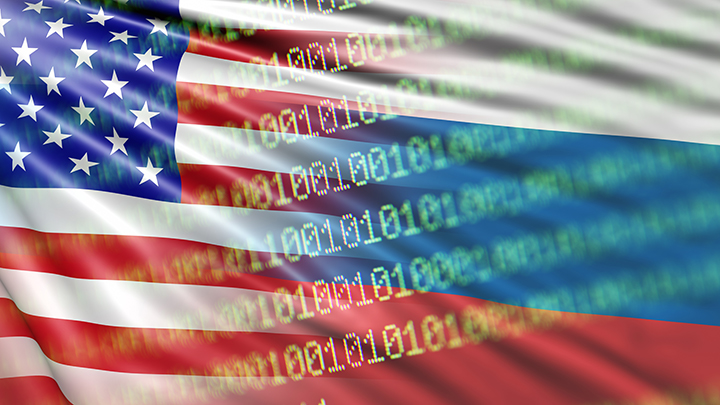 DePaul University experts are available to provide insight and commentary on cybersecurity and cyberhacking and how the U.S. investigation into Russian hacking could impact their relationship. (iStock.com/LPETTET)CHICAGO – In light of the U.S. investigation into Russian hacking,
DePaul University faculty experts are available to provide insight and
commentary on cybersecurity and cyberhacking. Political scientists also can
discuss how the controversy could impact the relationship between the United
States and Russia.
DePaul University experts are available to provide insight and commentary on cybersecurity and cyberhacking and how the U.S. investigation into Russian hacking could impact their relationship. (iStock.com/LPETTET)CHICAGO – In light of the U.S. investigation into Russian hacking,
DePaul University faculty experts are available to provide insight and
commentary on cybersecurity and cyberhacking. Political scientists also can
discuss how the controversy could impact the relationship between the United
States and Russia.
Available experts include:
Jacob Furst, Professor and Director
of the School of Computing, College of Computing and Digital Media. Furst
is an expert on computer vision and artificial intelligence, internet and
e-commerce security and privacy, and homeland security issues in technology.
Furst can discuss how the United States is seeking to establish international
norms for cyber-related conflict. “As is typical with technology, policy always
lags behind practice,” said Furst. “Nations are clearly able to engage in cyber
conflict, yet there are no international agreements on how it should be
conducted. Conventional conflict has many such agreements. I expect,
as with conventional warfare, we will need to see really destructive results
before nations actually come to the table to talk about cyber-conflict
norms. The other thing to consider is that the U.S. might need to exhibit
strong attack capability before other nations see us as a credible threat and
are thus motivated to talk.” Furst can be reached at 312-919-3980 or jfurst@depaul.edu.
Jean-Philippe Labruyere, Senior Professional
Lecturer in the School of Computing, College of Computing and Digital Media.
Labruyere is an expert on cybersecurity, networking and telecom, critical
infrastructure protection and internet of things. “When it comes to the acceptable and unacceptable
use of cyber weapons, we are in a situation similar to the beginning of the
nuclear weapon age,” said Labruyere. “No parties have any idea how to handle it
or how it should even be negotiated. And, with cyber weapons, we really do not
know the consequences or each party’s ability to retaliate. In addition, the
defensive threat profile that’s needed to defend against cyberattacks differs
vastly from country to country.” Labruyere can be reached at
312-362-5550 or jpl@depaul.edu.
Filipo Sharevski, Assistant Professor
in the School of Computing, College of Computing and Digital Media.
Sharevski is an expert on cybersecurity, information assurance and security,
cyber operations, digital and cyber forensics and advanced wireless mobile
networks. “In the cyber
realm, the advanced players are those who have strong support from their
governments, for example the Federal Security Service in Russia, People’s
Liberation Army in China and Federal Intelligence Service in Germany,” said
Sharevski. “Big players, including Russia, have a lot of talent to choose from
too, so it is not that hard to recruit people to do cyber operations. The
cyber-related conflict is a new type of conflict and all the players are still
testing the capabilities and the potential of cyber operations. We still don’t
have agreed rules of engagement for cyber-conflict.” Sharevski can be
reached at 765-714-9574 or fsharevs@depaul.edu.
Richard Farkas, Professor of
Political Science, College of Liberal Arts and Social Sciences. Farkas is
an expert on Central and East European politics; Russia, Ukraine and Bosnia;
and conflict and post-conflict states in the region. He is also available to
discuss U.S. influences on international elections. “Hacking has been going on
for a long time, and there is little, if any, doubt about that,” said Farkas.
“It’s happening, and it’s happening on a very large scale. The reason we know
that for certain is that there are a number of U.S. government agencies
investigating and there’s a redundancy among many private firms that are doing
their own work. They are all coming up with this pattern that’s reaffirming
this notion that it’s actually happening.” He can be reached at 847-251-2671 or
dfarkas@depaul.edu.
Tom Mockaitis, Professor of History,
College of Liberal Arts and Social Sciences. Mockaitis is an expert on
terrorism, counterterrorism, Europe, defense and arms control, and war. "The Russia-U.S. election incident reveals the vulnerability
of complex, technologically dependent societies to cyberattacks by states,
terrorist groups and rogue individuals," said Mockaitis. Mockaitis
can be reached at 773-325-7471 or tmockait@depaul.edu.
###
Media Contact:
Russell Dorn
rdorn@depaul.edu
312-362-7128